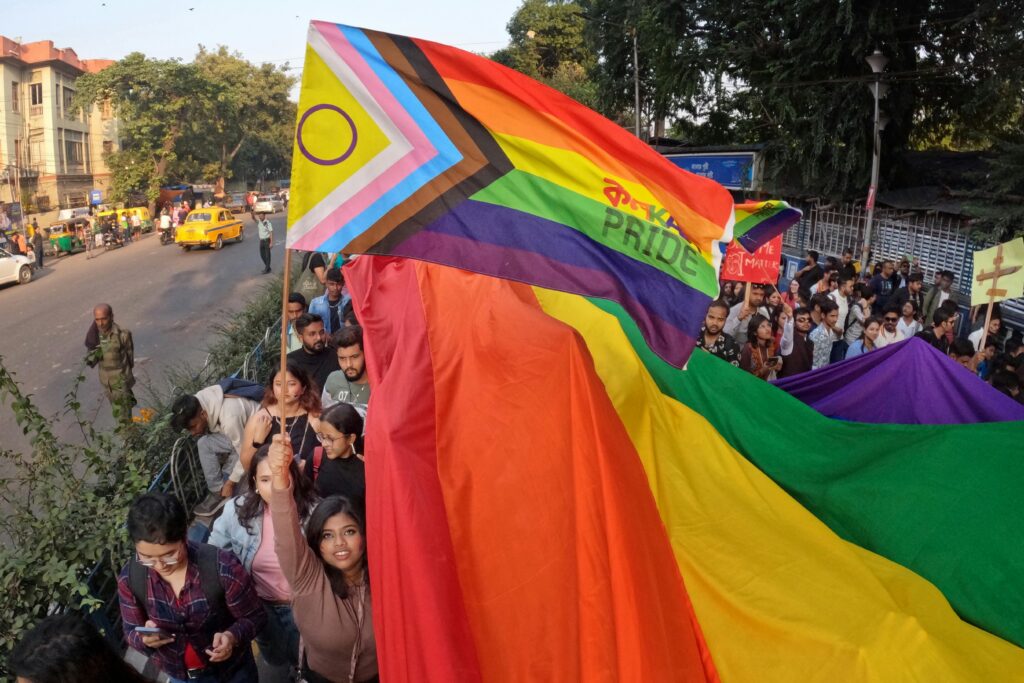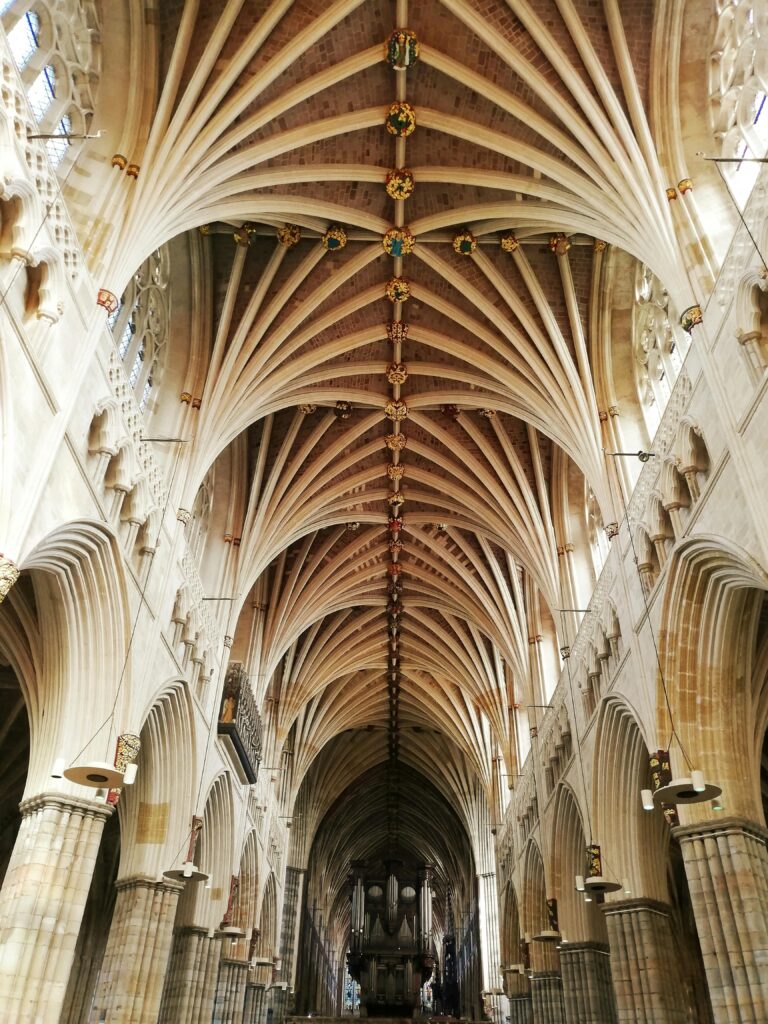This is part one of a three-part response to the Carlson-Putin interview.
The United Kingdom for all intents and purposes is at war with Russia.
Underlying all other points this must never be forgotten. To my mind Tucker Carlson has pulled off the interview of the year. He allowed Putin to speak, and some have claimed that this has allowed us to glimpse at the world through Putin’s weltanschauung: how he interprets the world, and Russia’s position in it. This could also be an incredibly naive position to take, as it implies that what Putin was telling us was what he believed – for which one must take a gigantic leap of blind faith over a chasm of lies and deception. Putin’s narrative had an altogether different intention. What it was remains opaque, but certainly not truthful.
No sooner had the interview been aired, western commentators began responding. The BBC: Tucker Carlson interview: Fact-checking Putin’s ‘nonsense’ history;1 Britain’s foreign policy think tank, Chatham House writes: ‘Putin’s Carlson interview shows the links between Trump talk and Russian messaging’;2 and Britain’s Guardian writes: ‘Tucker Carlson’s Putin interview wasn’t journalism. It was sycophancy’.3 Russian reactions were also loud. The Russian News Agency has articles with titles such as: ‘Putin’s interview with US journalist racks 150 mln views on X social network’;4 another wrote: ‘Criticism of Putin’s interview with Carlson designed to derail peace dialogue — German MP’;5 and ‘The Pope urges the West to listen to Putin and start negotiations with Russia without any preconditions,” Leonid Sevastyanov stressed’.6
In a liberal society, ideas and their counter ideas should be coming at us from all sides, allowing us to see the world from as many perspectives as possible. Of course, in reality it becomes almost impossible to see “the wood from the trees”. As a Director at the International Centre for Sustainability, based out of London, our very raison d’etre is to do exactly that – make sense of difficult things, from a view that is as objective as possible. Furthermore, we concern ourselves with everything that involves British (Western) and Indian interests – after all we are a centre that comments on both countries. Russia stands at a very perplexing intersection right in between Western and Indian interests. To my mind, it is worth noting the Pope’s first sentence, and maybe not his second one; namely that we ought to listen, and really listen attentively, with ample curiosity. I have done exactly that. I have tried to listen and really understand the “Putinian worldview” with equal amounts of scepticism.
The first thing to note is that Putin presents a historical narrative. Here he rests on a vision of the historical territorial extent of Russia, using Orthodox Christianity as the binding agent, something which his regime wants to re-create. This is essentially a state that is trying to claim legitimacy for its hostile actions from historicity. After taking us through a thousand-year history in 30 minutes, he leads us to the thrust of his argument, namely that Ukraine as a state essentially rests on a quasi, even superficial idea with shallow roots in modern history. He claims that Ukraine not so long ago denoted a people (Russian) who lived out on the frontiers – it was a geographical notion, not one of a separate identity. He also criticises Soviet leadership, especially Lenin and Stalin in creating an idea of Ukraine and Ukrainians as a separate region. All this is particularly dangerous because Putin de-legitimises an entire nation, millions of people who may indeed have interwoven connections with Russianness but classify themselves as distinctly other.
The colonial British tried to do something similar in India. The British tried to convince themselves and everyone else, including the Indians that they were essentially a non-nation, and that they all belonged to completely distinct separate castes, tribes and clans. There was nothing that they could call India, if it were not for the British. Sir John Strachey who had spent many years in the subcontinent, and had once been the Governor General’s Council, gave a series of lectures at Cambridge University to an audience of ‘to-be’ civil servants of the raj. In this lecture he claimed that ‘India was merely a label of convenience, a name which we give to a great region including a multitude of different countries.’7 Strachey was so convinced by his own myopic experience that he said, ‘Scotland is more like Spain than Bengal is like the Punjab’.8 He wasn’t finished. He went on to say with all the hubris-induced self-conviction, ‘in India the diversities of race, language, and religion were far greater. Unlike in Europe, these countries were not nations; they did not have a distinct political or social identity… this is the first and most essential thing to learn about India – that there is not, and never was an India.’9 One wonders what Sir John Strachey would say now if he was to see modern India, unified, and steaming towards her hundred years of independence? The residue of these preposterous notions is still found in countless works of scholarship and worse still, in the attitudes of civil servants and the wider establishment in western nations. Just as the colonial British empire ultimately failed in concocting its false history, Putin too, with his dreams of a Russian Empire, is most likely to fail in de-legitimising Ukraine.
When I speak with Ukrainians, they are first to admit their close ties with Russia and the Russian people, but, they say, “we are Ukrainians, and we want to govern ourselves and protect and promote our own distinct culture and identity.” Certainly, Putin’s history, even if partially correct, does not justify his actions. If one were to follow Putinian ideas to their end, we would have perpetual war and conflict between nations. Just think for a moment if India started to think in the same way about Pakistan, or Bangladesh, or Sri Lanka. It would be nothing short of disaster for everyone concerned. India too, if it were to use Putianian fuzzy logic could claim that the Sri Lankan identity is really a false consciousness, and that the Singhalese are decedents of Indians, most likely from Kerela. Even if true, India cannot, and should not deny that Sri Lankans now have a distinct identity and desire self-governance. A fair, liberal and decent society would accept this as a matter of fact.
Putin demonstrated that he holds completely opposite values to what we hold dear.
The next piece on the Carlson-Putin interview will be on why we must protect the City of London from geopolitics.



